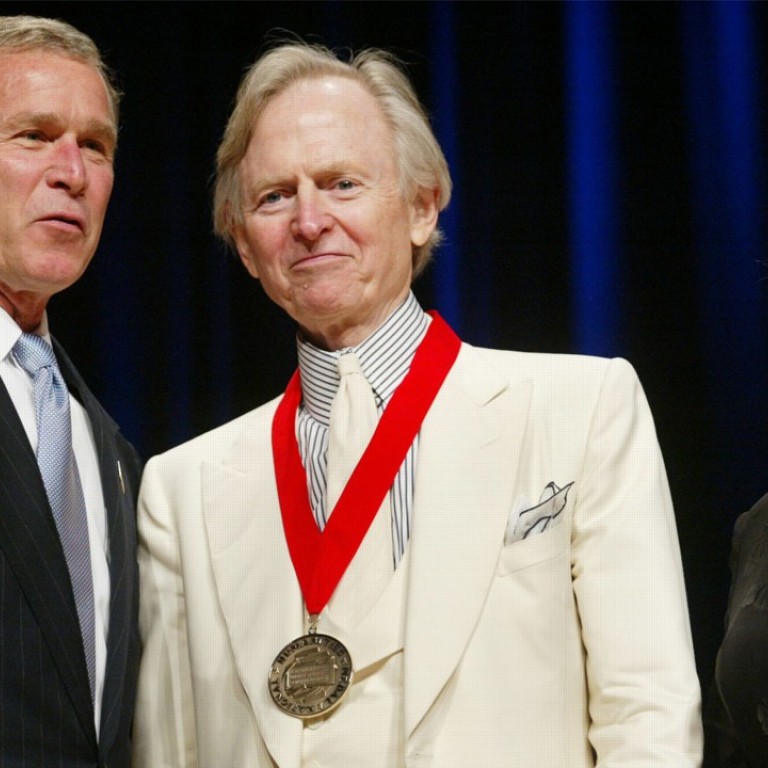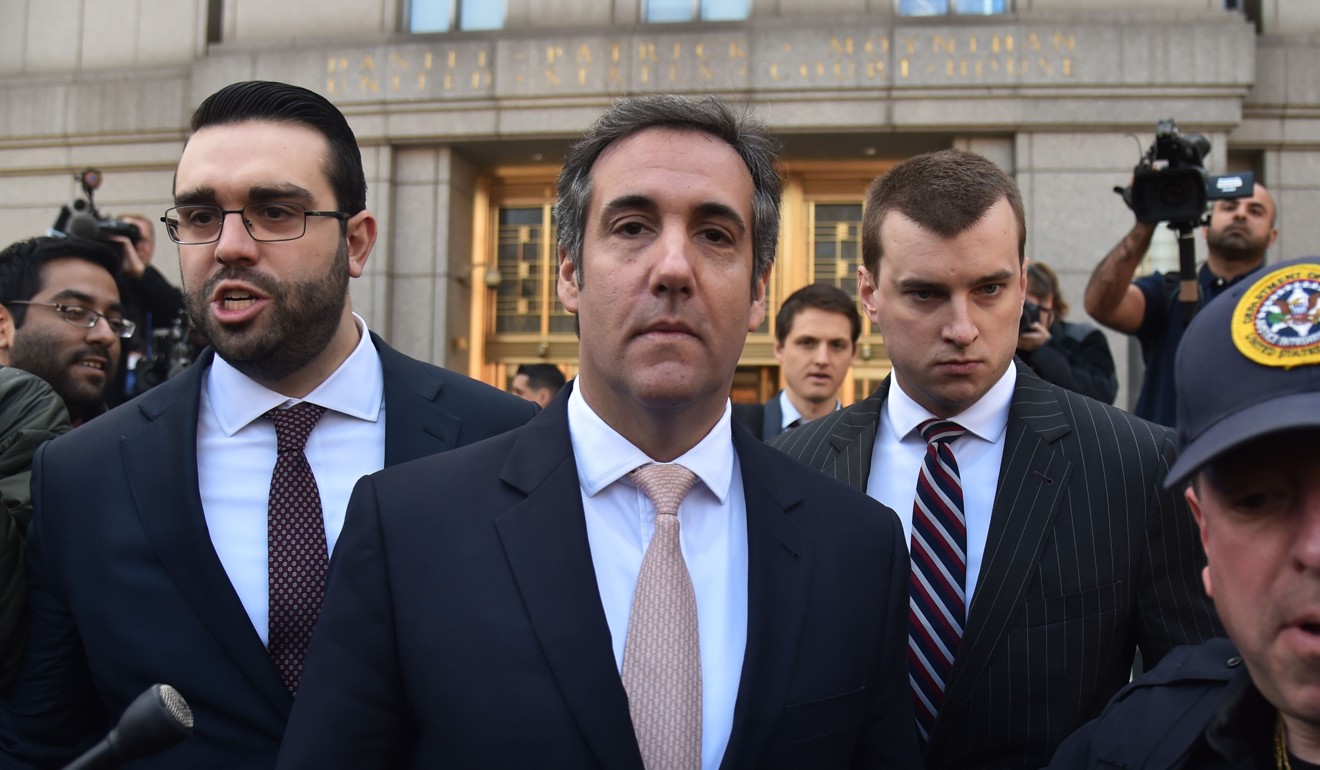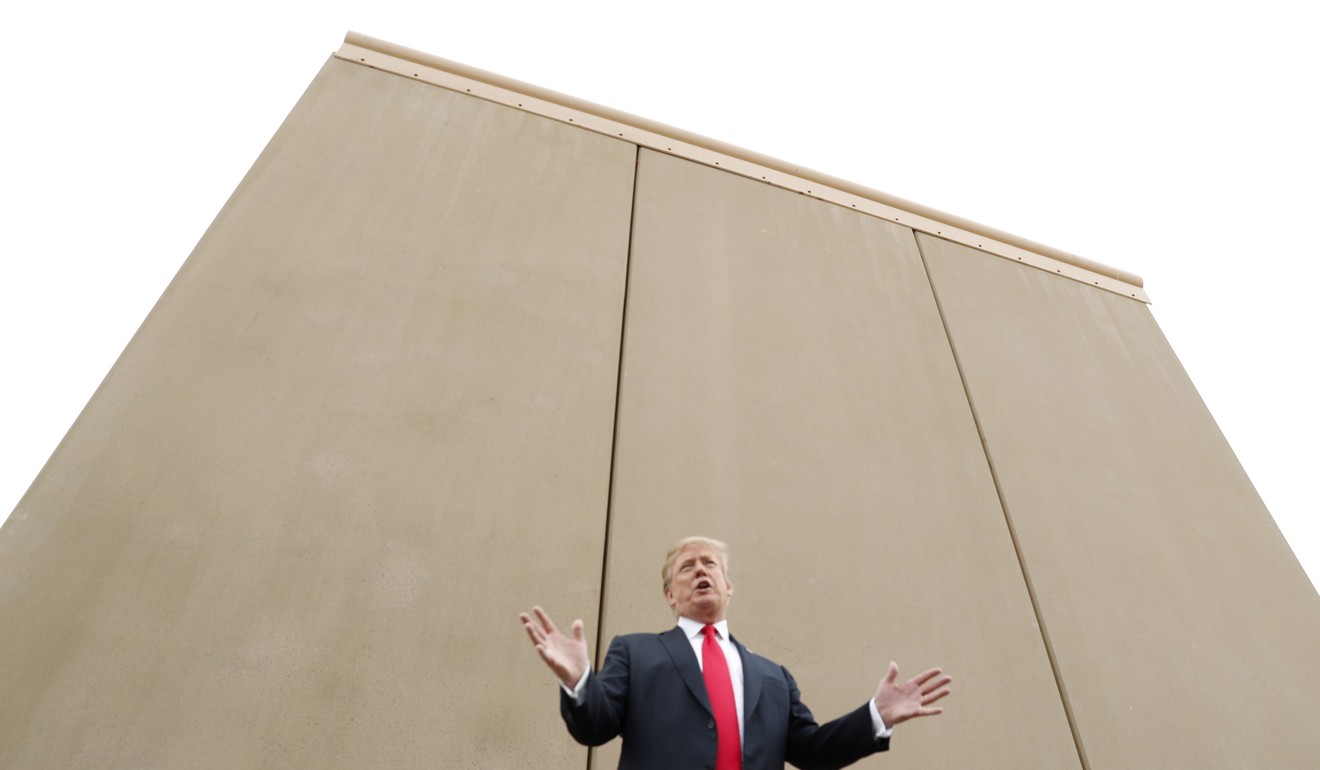
Want to better understand Donald Trump’s presidency? Read Tom Wolfe
Niall Ferguson says the novels of Tom Wolfe clearly explain the climate that created the US president, while the author also understood Trump’s underappreciated political genius
From The Electric Kool-Aid Acid Test to Radical Chic and The “Me” Decade, Wolfe the journalist had a knack for capturing and puncturing the zeitgeist, combining the verbal pyrotechnics of a James Joyce or a Jack Kerouac with a Southern sensibility that subtly conveyed contempt for 1960s and 1970s self-indulgence.
But the novels are Wolfe's masterpieces, exploring mercilessly the country's three great obsessions: money, sex and race. They can now be reread – and relished – as trailers for Trump's presidency, which is simultaneously, fascinatingly, horribly about all three.
And there Cohen is in chapter 24! McCoy is waiting to see his lawyer, Thomas Killian, who emerges from his office with “his arm around the shoulders of a pudgy … white man”.
"What can I tell you, Donald?” Killian says. “The law's like anything else. You get what you pay for.”

“A certain deep worry came bubbling up into his brain … Debt! A mountain of it! But real estate developers like him learnt to live with debt, didn't they … It was a normal condition of your existence, wasn't it … You just naturally grew gills for breathing it, didn't you …
“He, Charlie, was a one-man band. That was what a real estate developer was, a one-man band! You had to sell the world on … yourself! Before they would lend you all that money, they had to believe in … you! They had to think you were some kind of omnipotent, flaw-free genius. Not my corporation but Me, Myself & I!”
The established giants of the New York literary scene, notably Norman Mailer and John Updike, looked down their noses at Wolfe's novels, probably sniffing his deep-seated conservatism. But Wolfe's fiction is superior to theirs. For what Wolfe shows is that the obsession with money, and the status it confers, is only part of a triptych. Next to it, as each of the novels shows, is sex – about which Croker thinks at least as much – and race, America's original sin, about which Wolfe always wrote fearlessly.
Most intellectuals missed completely the potency of Trump's presidential candidacy in 2016. Not Wolfe. In an interview in March 2016 he shrewdly assessed the way Trump was “capitalising” on the widespread “distress and contempt for government”.

Wolfe noted that Trump's “real childish side” was part of his appeal. “He is a lovable megalomaniac”, as Wolfe put it. “The childishness makes him seem honest.”
Trump is in a completely different league from Reagan as a man. Reagan had arrived at his conservative principles through reading and reflection on both economics and politics. Trump, by comparison, has all the principles of Croker. We have abundant evidence that elements in his administration are corrupt; that he himself is a lecher and a philanderer; that he has no qualms about pandering to racial prejudice; and that he has no attachment to the constitution.
Niall Ferguson is the Milbank Family senior fellow at the Hoover Institution, Stanford

